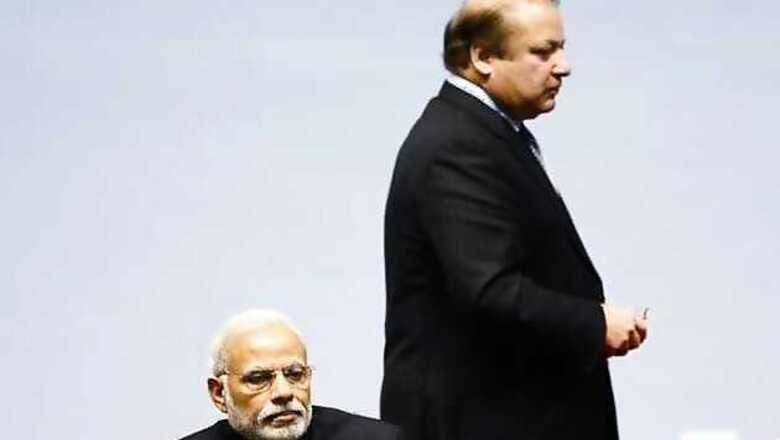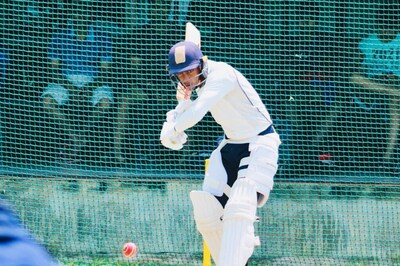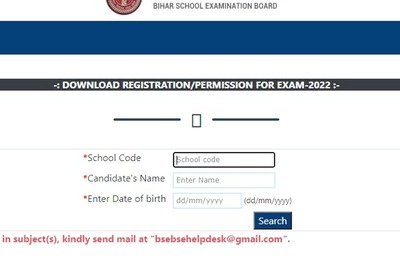
views
Islamabad: With the India and Pakistan ties still very cold, several former Pakistan defence officers and security experts blame Prime Minister Narendra Modi for no improvement in the bilateral relationship between the two neighbours. Former Pakistan Army Chief of General Staff, retired Lt-Gen Waheed Arshad has expressed fears that skirmishes along the Line of Control in Jammu and Kashmir between the Indian and Pakistani troops could resume.
According to Pakistani news website Dawn.com, experts deliberated on the options available to Pakistan in dealing with the "bellicose" Indian leadership at a seminar at Institute of Strategic Studies.
They put the onus of the strained relations between the two countries on India claiming that India's aggressiveness is unlikely to help in improving the ties. They also claimed that Modi's call to his Pakistani counterpart Nawaz Sharif conveying Ramazan greetings, after a spate of hostile statements, failed to generate expectations of progress in the relationship. "In Pakistan, the call was largely seen as a part of Modi's effort to reach out to leaders of Muslim countries in the region and reflecting a disinterest in bilateral engagement with Pakistan," the Dawn reported.
The former Chief of General Staff expressed fears that India could create conditions to stop Pakistan from hosting the SAARC summit in 2016 or skip the event altogether. He also added that Indian reluctance to engage with Pakistan was understandable given that its mantra of cross-border terrorism from Pakistan was finding receptive ears.
General Arshad listed Afghanistan and presence of non-state actors in both India and Pakistan as the complicating factors leading to worsening of ties. He recommended that Pakistan aggressively raise the Kashmir issue and All-Parties Hurriyat Conference should enter mainstream politics.
Dr Riffat Hussain, who heads the department of Government and Public Policy at National University of Sciences and Technology (NUST) said, "Pakistan finds itself in this predicament because it misinterpreted Modi's rise in Indian politics."
Hussain even claimed that Pakistan was slowly waking up to the reality of Modi-Doval doctrine which was about exploiting Pakistan's internal vulnerabilities, aligning with non-state actors in Pakistan to destabilise it. He believed that Modi's target was to weaken Pakistan Army to an extent that it would pose no challenge to India.
Hussain even suggested that Pakistan should stop 'begging' for resumption of dialogue with India, try to sell its own narrative, carefully handle relations with China and do everything to foil Indian designs against the planned China-Pakistan Economic Corridor.
Speaking at the seminar, Defence analyst retired Lt-Gen Talat Masood also said that Delhi would continue putting pressure on Pakistan to keep it on back foot, but would avoid direct conflict due to its economic costs. "India would not go beyond a certain point because that would not serve its interest," he said.
He said that Indian tactics were meant to dissuade Pakistan from raising the Kashmir issue and forcing it into an arms race which would affect its national developmental goals.
Institute of Strategic Studies Director General Ambassador Masood Khan said Pakistan should think deeply about the ties with India which is talking about new choices and new constructs like neutralising terrorism through terrorism. Pakistan's dilemma, he said, was that talking peace would be seen as a weakness because of non-reciprocity from India, while a robust response would be interpreted as over reacting.




















Comments
0 comment